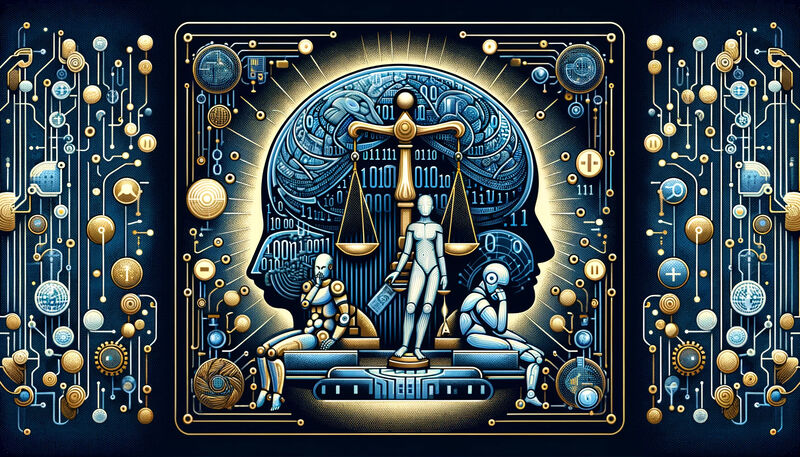The Ethical Dilemmas of Artificial Intelligence: Navigating the Future of AI Governance

In the rapidly evolving landscape of technology, artificial intelligence (AI) has emerged as a double-edged sword, offering unprecedented opportunities for innovation and efficiency while raising significant ethical dilemmas. As AI systems become more integrated into our daily lives, from personal assistants to autonomous vehicles and healthcare diagnostics, the need for robust AI governance has never been more critical. This article delves into the ethical challenges posed by AI and explores the pathways towards effective governance.
Ethical Challenges of AI
Bias and Discrimination: AI algorithms can perpetuate and even amplify biases present in their training data, leading to discriminatory outcomes. This issue is particularly concerning in areas like criminal justice, hiring practices, and loan approvals, where biased AI could reinforce existing societal inequalities.
Privacy: AI's ability to collect, analyze, and act on vast amounts of personal data poses significant privacy concerns. The risk of surveillance and data misuse by both state and non-state actors underscores the need for stringent data protection measures.
Accountability: The question of who is responsible when AI systems make mistakes or cause harm is a complex issue. The distributed nature of AI development and deployment complicates the attribution of accountability, raising concerns about legal liability and recourse for affected individuals.
Autonomy: AI systems, especially those employing autonomous decision-making capabilities, challenge our notions of human autonomy and control. Ensuring that AI enhances human decision-making without undermining it is a delicate balance to strike.
Navigating AI Governance
Establishing Ethical Guidelines:** Developing and implementing ethical guidelines for AI development and use is crucial. These guidelines should be based on principles such as fairness, transparency, accountability, and respect for human rights.
[b]Regulatory Frameworks: Governments worldwide are exploring regulatory frameworks to manage AI's impact. These regulations should be flexible enough to encourage innovation while protecting society from potential harms. Collaboration between policymakers, technologists, and other stakeholders is essential for crafting effective laws.
Transparency and Explainability: Making AI systems more transparent and explainable can help address concerns about bias and accountability. This involves disclosing how AI models are developed, trained, and deployed, and ensuring that AI decisions can be understood and contested by humans.
Public Engagement:[b] Engaging the public in conversations about AI's ethical implications and governance is vital. Public input can help shape policies that reflect societal values and priorities, ensuring that AI development aligns with the public interest.
[b]International Cooperation: AI's global reach necessitates international cooperation in governance efforts. Cross-border initiatives can help harmonize regulations, share best practices, and address challenges posed by AI on a global scale.
Looking Forward
As AI continues to advance, navigating its ethical dilemmas and establishing effective governance will require ongoing effort and adaptation. By fostering an inclusive dialogue among all stakeholders, prioritizing human rights and ethical principles, and embracing regulatory innovation, we can harness the benefits of AI while mitigating its risks. The future of AI governance will shape not only the trajectory of technological development but also the kind of society we aspire to be.

